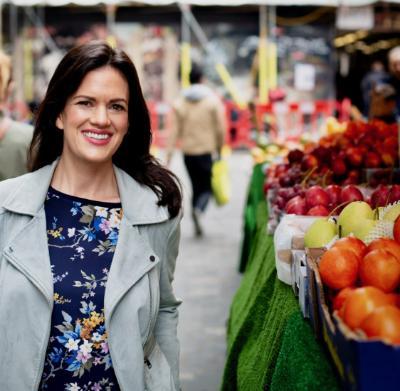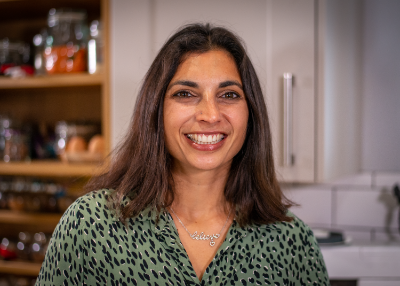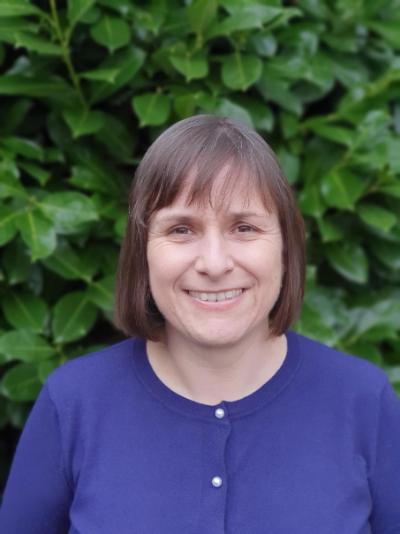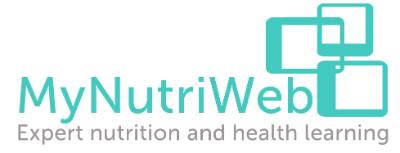Public Figures
We'd like to thank the following public figures for their support of Sugar Awareness Week 2022:
Azmina Govindji, Registered Dietitian and Nutritionist
"We often don't realise how much hidden sugar is in our breakfast. As you're rushing to the coffee shop for your morning coffee and blueberry muffin, you might be heading for an onslaught of more than 5 teaspoons of free sugars. Not a great look, considering we should be cutting our free sugars intake to 7 teaspoons for the whole day. Breakfast is an opportunity to top up on important nutrients like fibre, protein and B vitamins. So I'm delighted to support this year's Sugar Awareness Week, helping people make wiser morning choices."
https://azminanutrition.com IG: @azminanutrition Tw: @AzminaNutrition
Charlotte Radcliffe RNutr, Registered Nutritionist 
"Sugar consumption across our population far exceeds recommended guidelines and due to the health risks associated with this, it’s vital this topic continues to be highlighted. A multi-pronged approach is necessary, and Government need to be reminded that decisive action is needed to make it easier for the public to consume less sugar and for industry and nursery/school settings to serve less.
Marketing is another key area requiring attention, particularly when it comes to foods aimed at kids. Even the savviest of shoppers can be persuaded that a product is healthier than it is, and breakfast cereals are often a good example of this. They might be a convenient, fuss free option in the morning and can have a place in a healthy balanced diet, but in many cases these products also contain excessive quantities of sugar. Often without the parent realising."
https://thenutritionconsultant.org.uk IG: @the_nutrition_consultant Tw: @Nutr_Consultant
Charlotte Stirling-Reed RNutr, Registered Nutritionist
"Sugar alone offers little to no nutritional value, beyond calories. Added sugars are therefore not an ingredient that is a ‘necessary’ part of our diets. Babies and young children in particular don’t need added sugars and Government advice is not to offer added sugars during the early years. Consuming a lot of foods that are high in added sugars, such as cakes, pastries and biscuits, regularly, can result in children filling up on these foods in place of other food groups which offer a variety of important nutrients into little one's diets. Offering these foods regularly may also result in children (who are developing food preferences in the early years) developing a preference for sugars and sweeter food options over a variety of other tastes. Sugar is not “addictive” or “toxic,” but it’s not ideal in large amounts for young children. Additionally, it can be quite prevalent in many everyday foods offered to young children, which can make it quite tricky as parents to know roughly how much they’re having! Action on Sugar are doing some great work to help raise awareness of sugar levels in our foods, which is so important to be aware of for parents who are trying to navigate so many different aspects of feeding children."
https://www.srnutrition.co.uk IG: @sr_nutrition Tw: @SR_Nutrition
Eli Brecher ANutr, Registered Associate Nutritionist

"The rise in obesity and its associated health problems (type 2 diabetes, high blood pressure and heart disease to name a few) has shone a spotlight on the nation’s excessive sugar consumption. As well as weight gain, high sugar intake is also linked with tooth decay.
Whilst I do not believe that sugar needs to be eliminated entirely, we do need to be aware of our consumption of free sugars, especially within hidden ingredients on the endless list of confusing terms for sugar, from fruit juice to treacle. I support Action on Sugar’s campaign to drive the conversation around reducing our sugar intake."
www.elibrecher.co.uk IG: @elibrechernutrition
Laura Matthews RNutr, Registered Nutritionist 
"A balanced breakfast can provide essential nutrients that the body needs such as protein and starchy carbohydrates. Including fruit and vegetables too can also increase the fibre and vitamin and mineral content. I support #sugarawarenessweek and encourage nutritious low sugar breakfast options to be available as standard for children attending school or nursery on a daily or regular basis".
https://www.lauramatthewsnutrition.co.uk/ IG: @laura_mattews_nutrition Tw: @LauM_Nutrition
Priya Tew RD, Dietitian
"As a mum to 6 children I well know the struggles there can be over sweet and sugary foods including breakfast cereals. Restricting sugary foods can lead to children craving them and not going overboard later in life. As an eating disorders specialist dietitian I see all too often how a poor relationship with food can evolve and lead to problems. I'm of the opinion that we should moderate and not cut out, so in our house the breakfast bowl is based on a wholegrain cereal, with the sweeter, more fun cereals used as a smaller topping, along with fruit. I fully support Sugar Awareness Week and agree we need change in the ways foods are manufactured and sold."
www.dietitianuk.co.uk IG: priya_tew Tw: @PriyaTew
Rhiannon Lambert RNutr, Registered Nutritionist-350x442.jpg)
“Although sugar has been regarded as the enemy for a long while, the truth is that not all sugars are bad for us. Sugar has its place in the diet – in the right quantities, and in a form your body can handle comfortably. Foods containing natural sugars, such as fruits and dairy products, are good sources of many nutrients as well as the energy provided by sugar. Food containing free sugars often has little or no nutritional benefit. The World Health Organization (WHO) recommends no more than 5 percent of daily energy intake comes from free sugars. Science confirms what we all know – that sugar affects the feel-good reward centre in the brain. It triggers a pleasure response that’s similar to how we feel when watching cute puppies or receiving love. Perhaps that explains why sugar provides more calories in our diets than is advisable. But there’s no need to demonize it. Psychology plays a major role in the nutrition choices we make. Going teetotal on any food may lead to binging; moderation is best.”
www.rhitrition.com IG: @rhitrition TW: @Rhitrition
Zoe Griffiths RNutr, Registered Nutritionist
“I am proud to be supporting Sugar Awareness Week this year. As a Registered Nutritionist (Public Health), I know how breakfast is a great chance to fill up and get a healthy start to the day. However, with so many commercial breakfasts high in free sugars, we are often eating a lot more sugar than we realise. It is great to see Action on Sugar raising awareness of this.”
https://zgnutrition.co.uk/ IG: @zg_nutrition Tw: @ZG_Nutrition
Tanya Haffner RD, CEO, Founder MyNutriWeb


-400x267.JPG)
